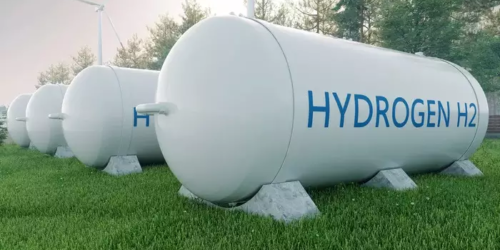Energy operators of the gas grid said this morning they will have the capacity to blend 20 per cent of hydrogen fuel into the regular gas grid from next year.
This means the grid will be able to deliver more hydrogen to households across Britain, a move that could see a drop in households’ carbon emissions.
“Whether it be heating our homes, powering our businesses or generating cleaner electricity, hydrogen will help drive up our energy security, while driving down our carbon emissions – and Britain’s gas grid companies are ready to get on with the job of delivering that,” said Energy Networks Association chief executive David Smith.
What’s key is that the Government does its bit too by lifting its target for homegrown hydrogen production this decade. Doing that today will help gas grid companies deliver for tomorrow.”
Hydrogen can be produced in several ways, some of which are entirely green. Some manufacturers use renewable electricity to split water atoms into hydrogen and oxygen.
This method does not release any carbon into the atmosphere.
However most hydrogen is still produced by manufacturers who make hydrogen from natural gas – a process which produces carbon. Some manufacturers try to capture this carbon during the process.
There are also questions whether there will be enough hydrogen to fill the whole 20 per cent capacity as soon as next year.
The networks hope that by providing the capacity it will encourage producers to ramp up production.
They called on the Government to double the target for how much hydrogen should be produced in the UK by the end of the decade.
But if the 20 per cent capacity could be met it would be a major step towards reducing the UK’s carbon emissions, the equivalent of taking 2.5 million cars off roads.
Around a third of emissions from British homes come from heating, largely because there are so many gas boilers in the country.
Blending hydrogen into the system will not only reduce these emissions, if green hydrogen is used it will also cut emissions from gas stoves and from gas power plants that supply electricity to homes and businesses.
Regular gas boilers are able to cope with 20 per cent hydrogen blended into the system. However boilers up and down the country will need to be swapped for “hydrogen ready” alternatives if more than 20 per cent is blended in.
UK households need to reduce their carbon emissions by 95 per cent by 2050 if the country is to meet its target of being net zero by then.





